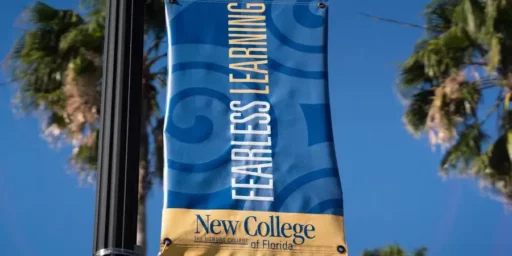Professor Sabbaticals Under Fire
Iowa Republicans are targeting professor sabbaticals, thus demonstrating that they understand neither higher ed nor economics.
Iowa Republicans are targeting professor sabbaticals and the universities are caving in. AP reports:
Iowa’s three public universities are asking for fewer paid research leaves for professors, a practice that has come under fire from Republican lawmakers.
A proposal released Thursday shows the University of Iowa, Iowa State University and the University of Northern Iowa are requesting 95 sabbaticals for professors during the budget year that begins July 1. That would be 12 less than last year and the third straight annual decrease.
[…]
House Republicans have proposed canceling sabbaticals to reduce state spending. The regents’ proposal says it would cost $255,800 to hire instructors to fill in for faculty on sabbatical. But it also says the leaves helped generate $5.2 million last year in research funding.
Inside Higher Ed gives additional pertinent facts:
“It seems to be tough budgetary times. Why should the taxpayers of Iowa be paying to basically give these folks a year off from teaching?” said Kraig Paulsen, who is about to become speaker of the House. Edwin Dove, president of the Faculty Senate at the University of Iowa, said that while on sabbaticals in 2009, professors wrote 26 books; published 147 research articles; created and updated nearly 100 classes; and submitted 50 grant applications.
The degree to which people don’t understand higher education astounds me, although perhaps it shouldn’t. But you’d think they could understand simple math: $5.2 million is quite a bit more than $255,800!
A sabbatical isn’t “a year off” any more than the space between the spring and fall semesters are “two months off.” They’re a time for concentrated work on research projects without the interruption of teaching classes, faculty meetings, committee duties, and the myriad other things that occupy a professor’s time when school is in session.
There’s an argument to be made that a lot of research isn’t worth the money. If a professor is making, say $70,000 a year to teach two classes a semester with the expectation of publishing two referred articles, that means those articles “cost” $17,500 apiece as compared to a professor making that same salary and teaching four classes a semester. If either professor goes on sabbatical to write a book, the taxpayer is paying $70,000 for the publication of said book. Is the knowledge created really worth that much to Iowa farmers asked to pay for it? I suppose it depends on the subject matter and how much impact the research makes on the field.
But, theoretically at least, the money is also an investment in professional development. The professor should come back to the classroom not only refreshed from the break from teaching but reinvigorated as a scholar. That should add value to the students for years to come, which means the cost should be amortized over the longer period.
Beyond that, the numbers are truly staggering. I gather that 107 professors employed by the state of Iowa went on sabbatical in 2009 and produced 26 books, 147 published articles, and 50 grant applications. That’s not bad! But what’s truly remarkable it apparently costs an average of $2692.63 ($255,800/95) to hire fill-ins. I know it’s a buyer’s market in higher ed and that Iowa has relatively low cost of living. But, goodness, that’s cheap.







Two thoughts (and full disclosure: I had a one semester sabbatical last year).
First, the point about professional development is key. Research and writing are not just about the specific article, book, or whatnot that is produced. It is also a way of making a professor a better teacher. Another frequent complaint about the academy is that faculty teach the same classes over and over again from fabled “yellowed notes”–but how do people think that faculty update their teaching? One key way is through research (which, granted, does not always require a sabbatical, but it is part of the process).
Second, the numbers are misleading insofar as colleges and universities are rarely (if ever) fully funded by the state budget. I have no idea about Iowa, but I know that in Alabama the larger institutions (the U of Alabama, Auburn and Troy U systems) receive only 25% or less of their funding from the state (that number is higher for some of the smaller institutions in the state). So the notion that the people of the state of Iowa are directly funding the sabbaticals is not accurate. (And, as noted, since many of those sabbaticals generate grant monies, they more than pay for the cost).
Well ;-), if sabbaticals are good, why aren’t they for everyone?
There have been examples outside academia, as in the go-go Silicon Valley years:
“Sabbaticals are fast becoming the norm in Silicon Valley. Companies that have yet to jump on the bandwagon – even those outside the hi-tech arena – would be wise to consider the pros and cons of extended paid leave.”
http://findarticles.com/p/articles/mi_m3495/is_n9_v42/ai_20098927/
I suspect that sabbaticals would be good in a wide variety of fields, but few fields have them as inculcated as academia. And thus, when pu$h comes to $hove, academia is the last to defend them.
One thing about your math James, you are basing the direct cost of the two articles based on a % of the profs salary (problematic but ok for the sake of discussion). The implication some might draw is that that is what it “cost” the taxpayer for the articles.
what should be noted is that funding from higher education from the state has dropped over the last 20-30 years from (very rough numbers that vary from state to state) a high of about %70 to as low as %12. so fine eliminate sabbaticals and you save a very small chunk of that 12 to 20 %. This is just straight up demagoguery for anti government politicians to “cut” something that has a very small constituency.
I mean really, they don’t have to stones to fire the 10’s of 1000’s of people that real spending cuts would cause and fool around at the margins to con an uninformed public. Remember “spending cuts” is a euphemism for putting a lot of people out of work. How that will help the economy or the deficit I can’t say.
Patheic.
The universities need radical redesign. They don’t fit our modern times. They find their way, responding to pressures and defending old ways. It becomes path dependent. They are what they are because of how they got there, not because there is any coherent idea about what they should be in the future.
Sabbaticals are probably not the best thing to attack, but neither are they the best thing to defend.
You could have left it right there, JJ.
ps: wordpress likes to tell me I am posting to quickly. At my typing speed that is physically impossible… it even likes to do that when I am commenting for the first time of the day.
I have experience the same post-related problems.
JP, they may be hard to defend, but that only makes it all the more necessary to. Ask yourself this: How many corporations do basic research that has no forseeable payoff?
I remember when Proxmire (????) was giving out his “Golden Fleece Awards” he gave one to a guy who was doing research on the anal temperatures of Alaskan sled dogs. That research ended up having a direct impact on NASA’s design of space suits.
James — You don’t seem to understand that you belong to a party that hates education. They are terrified of universities, which is why the spend so much time screaming about “Marxist indoctrination” on campuses. The Republican party needs a world in which there is no actual truth, where their lies are exactly the same as the reality explained by a scientist or an eonomist or a scholar. These are your people, and I will never understand how someone as intelligent as you can bear to have anything to do with them…
Interesting discussion here. There’s an old expression that a Conservative is a Liberal that’s been mugged. But maybe a Liberal is a Conservative that is talking about their own situation, rather than someone else’s.
As I rambled above tom, I think sabbaticals are broadly good. I think research is broadly good. I even think that Proxmire hit a lot of silly, but good sounding, things.
I don’t think most research is done on sabbatical though. My chem profs all had ongoing projects.
backwards, “silly sounding, but good, things”
Research tends to be ongoing, but it can be hard to develop a new agenda or interesting direction while having to teach at the same time.
It is certainly true that research is ongoing. I wrote my first book with a heavy teaching load (4 courses on campus plus 2 online per semester) as well as being President of the Faculty Senate. Likewise another, less rigorous, book was finished this semester with a a similar load. However, certain projects require extra time off. And certainly I could have written the aforementioned book much faster had I had less teaching to do. But so it goes.
When the pols in question are ready to give up junkets. per diems and expense accounts, they should get back to us.
“Research tends to be ongoing, but it can be hard to develop a new agenda or interesting direction while having to teach at the same time.”
People with jobs tend to feel the same way 😉
I worked in R&D at a medical equipment manufacturer for ten years. Next-gen products were always developed in the gaps between current-gen products.
Because not everyone is capable of or involved in research or development. I think anybody who is, or can be, should be allowed some paid time to do so, it would benefit lots of companies.
I know many, including mine, have started to implement official or unofficial “20% time” policies that give employees, on average, one day a week to work on projects or research outside of their official set of tasks. This is essentially a 2-month sabbatical spread over the course of a year, rather than used all at once.
“Because not everyone is capable of or involved in research or development. I think anybody who is, or can be, should be allowed some paid time to do so, it would benefit lots of companies.”
I agree. And it may be personality type as well as job-role. Perhaps a particular welder would take particularly good use of his sabbatical, while a particular instructor would not.
Of course, we’d need a rich society to support all these sabbaticals, and we are re-assessing where we really stand on that.
John P made the most important point, higher ed needs reform. Sabbaticals are indeed nice for the professors and give them time to write. Do they really help to educate? That’s the question that seems to always be missed by those in higher ed. It has become less about the students and more about the faculty and university.
Times are tough and if you’re going to look where to make the adjustments I would certainly see sabbaticals as a great place to start. I’m sure the faculty lounge lizards (that’s a term of endearment) won’t like giving up their vacations disguised as research travels but it beats forcing the students to borrow more for an already overpriced education. After all who do these universities serve? The faculty or the students?
If you assume that the more that faculty know the better they can educate, then yes.
If the grant money that is generated leads to material benefits for the university and therefore the students, then yes.
Speaking solely for myself, there is absolutely no doubt in my mind that my research has enhanced my teaching. Research means knowing more and understanding more. That enhances the classroom without any doubt.
Steven, we know that information at our finger tips changes research dramatically. The same time is needed to ponder, but much less time is needed to seek.
Certainly a part of old-timey sabbaticals were burned traveling to libraries, and searching the stacks.
Of course, tech isn’t necessarily a net-plus. Here you are blogging 😉
@JP:
Well, one needs time to ponder whether one haunts the stacks or find the material via an online database (does it help my cred that I spent a couple of weeks in Colombia during my sabbatical and part of that time (quite a bit, in fact) was spent in a library? And that summer before last I spent a week at the LoC? 🙂
And, I actually like that blogging has been good for my teaching as well, in fact 😉 That’s a discussion for another day, I suspect.
@Plunk
“I’m sure the faculty lounge lizards (that’s a term of endearment) won’t like giving up their vacations disguised as research travels but it beats forcing the students to borrow more for an already overpriced education.”
Your codpiece is slipping.
in terms of travel to libraries, I suspect we are living in brief transitional period.
@JP:
To some degree, yes. If we are talking just about books, then absolutely.
In terms of certain types of archival materials, I have my doubts.
I could see “specimens” being tied to a physical location for a long time, but anything within the broad definition of “publication,” no.
http://manuscripts.cmrs.ucla.edu/
And under those circumstances, you make a case to your boss, and if he agrees, you adjust the schedule, shift responsibilities, etc. If I did the same thing to my boss, he’d tell me to……apply for a sabbatical and do it then.
JP, agreed, however I think the really wacky off the wall stuff that nobody can guess what might possibly come out of it… It is a little easier to do that stuff on Sabbatical.
Well, this particular carpenter could make really good use of a sabbatical 😉